Feature
Persisting, with a Peer by Your Side
North Park’s robust support programs keep first-year students on track.
By Ellen Almer BA ’94
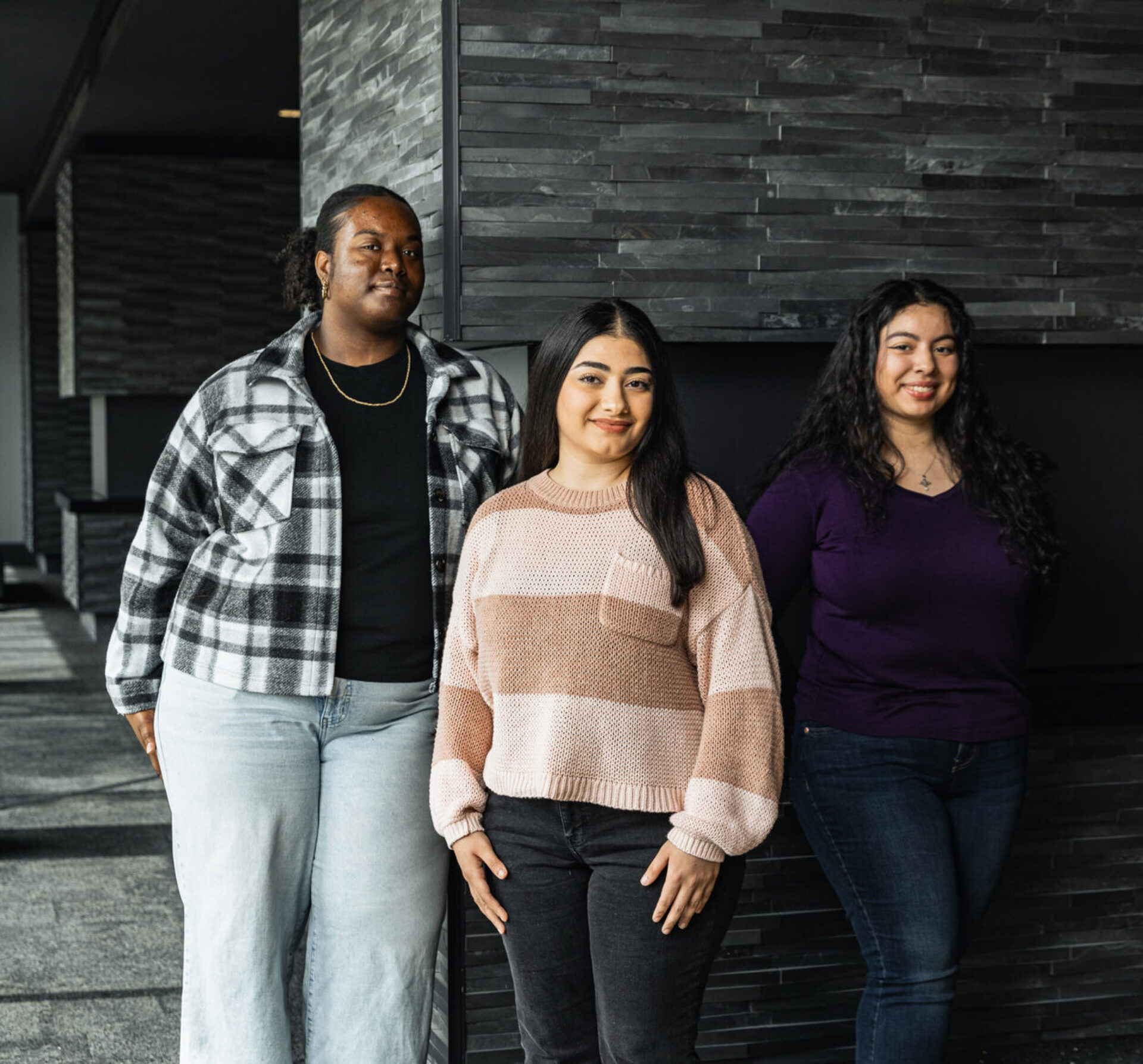
North Park University’s (NPU) Kaia Thompson BA ’25 spent a recent spring morning sipping fruity beverages in a classroom in the Nancy and G. Timothy Johnson Center for Science and Community Life. It was all part of her position as a peer student success coach (PSSC), where she helped younger students adjust to the new world of college.
“Finding a community that supports you can make or break your college experience,” said Thompson, a biomedical sciences major whose mentoring role included sharing educational resources, providing advice, and attending social events with new students.
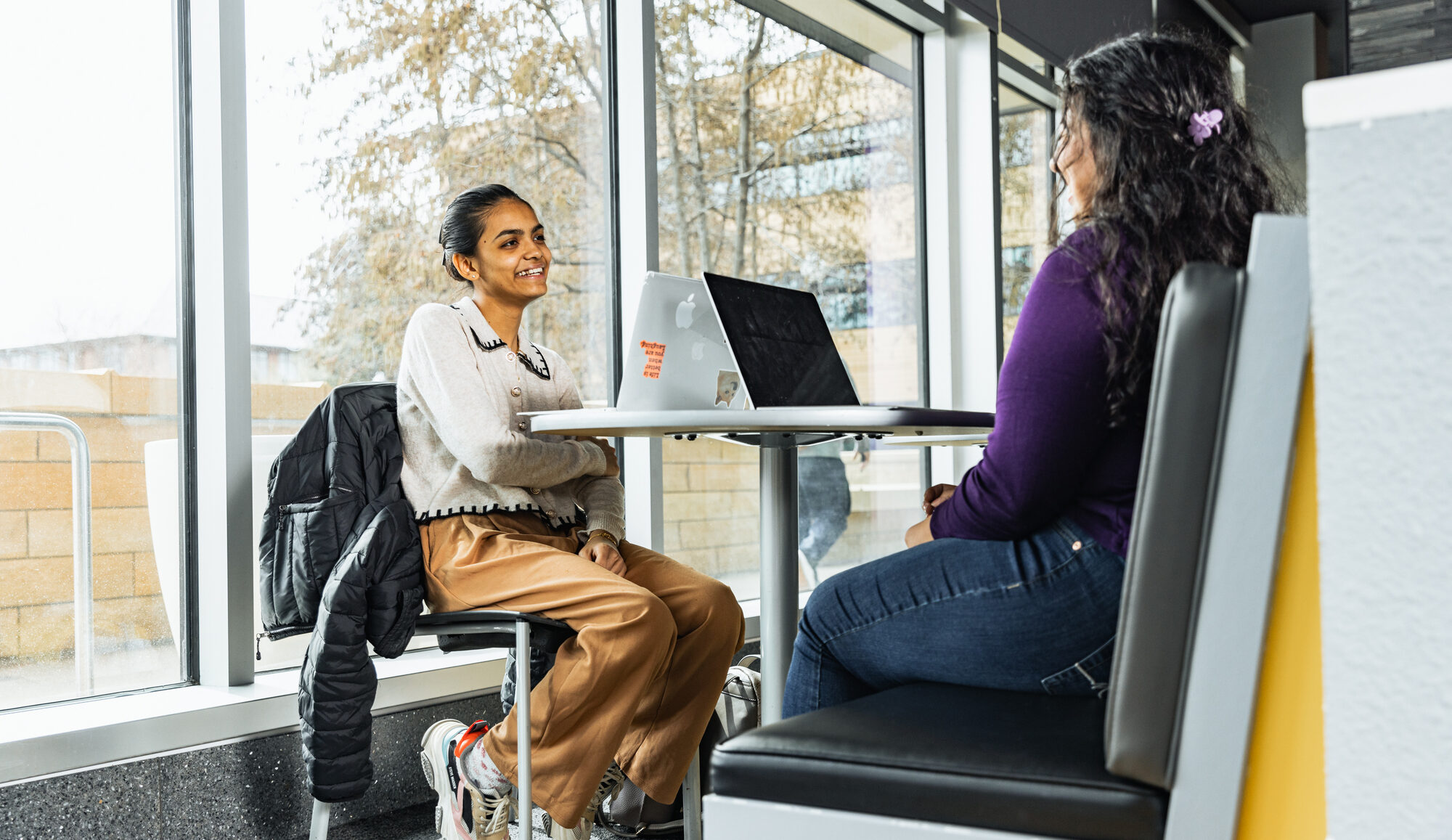
Hence, her foray to the Chemistry Club, where she indulged in fruit mocktails with fellow students, many of them commuters; the early meeting time was to accommodate their schedules.
The PSSC program is one of many innovative North Park initiatives designed to attract and retain a generation of college students impacted by the COVID-19 pandemic, helping them navigate university life’s social and academic rigors.
I needed help getting into school for my master’s, and I had to seek it out. That inspired me to get into higher education, to bring the same support I received and make it more accessible.
—CLAUDIA GONZALEZ
Other programs that encourage resilience among first-year students are the OneGoal program, supporting first-year students from under-resourced Illinois high schools; the Lighthouse Cohort Program, assisting first-generation college students; COMPASS, helping students who face academic challenges thrive during their first year; and the new pilot program Persisting through Advising and Student Outreach, or PASO.
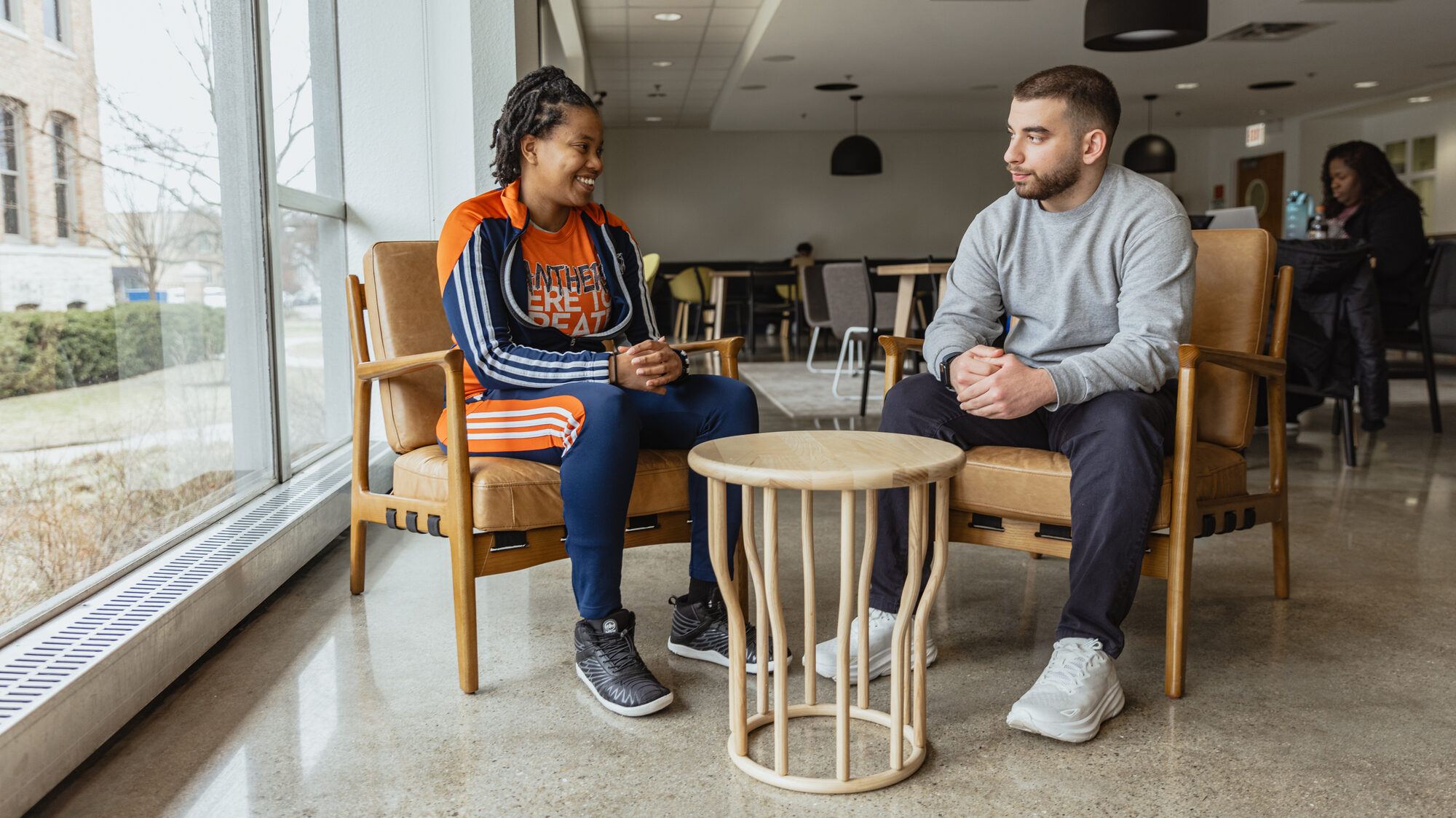
For Evelyn Aucutt, senior director of academic engagement and student success and a first-generation college graduate herself, one of the keys to success is consistent support.
“It’s about learning the culture, and higher education is a culture like no other,” said Aucutt, who was part of the team that helped NPU achieve its federal status as a Hispanic Serving Institution. “Universities have a way of conversing that’s new to students. Sometimes, students need reinforcement; they don’t always get it the first time.”
We’re the first person you see at registration and the people you see the whole year. PSSCs are that rock for new students.
—NORA NUNEZ
Former PSSC Nora Nunez BS ’25 sent her mentees brief monthly surveys to stay in touch. She found the short-form questionnaires—where she asked what students were working on, how classes were going, and even what shows they were watching—were a great way to remind students they have support when needed.
“We’re the first person you see at registration and the people you see the whole year,” said Nunez, who majored in psychology. “PSSCs are that rock for new students.”
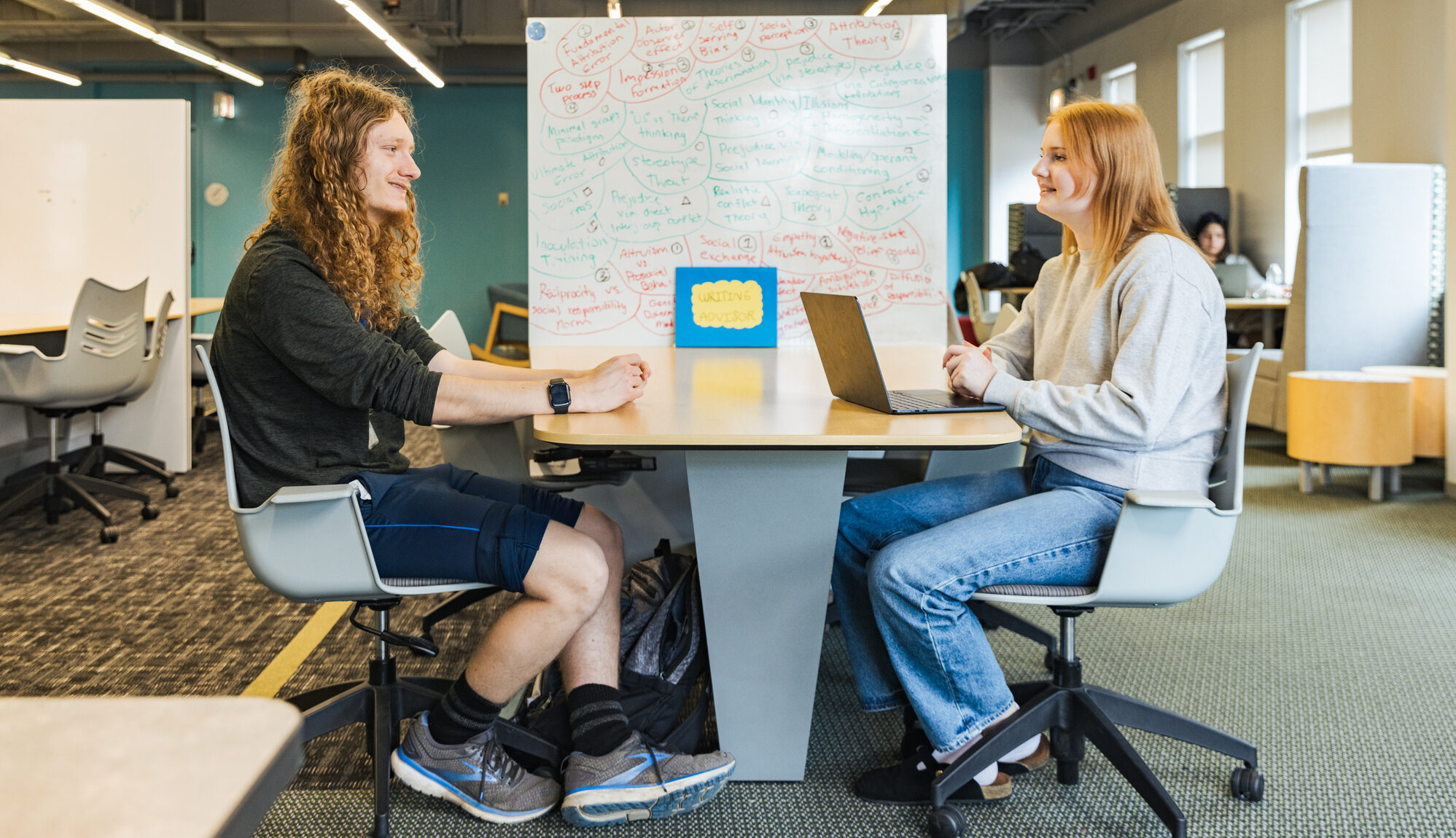
Grant money has provided invaluable support for these programs, Aucutt said. For example, North Park received a recent grant from the National Science Foundation that provides resources for a new advisor position for first-year students majoring in a science, technology, engineering, or math (STEM) field.
That advisor, Claudia Gonzalez, has a Master of Arts in Mental Health Counseling and a background as a college admissions counselor. She is well-equipped to guide students through the challenges of their demanding majors.
In her position, Gonzalez will also teach a first-year STEM seminar to help students develop the foundational skills they need to succeed in college. Topics will include everything from navigating a syllabus to understanding the importance of faculty office hours.

“I needed help getting into school for my master’s, and I had to seek it out,” Gonzalez said. “That inspired me to get into higher education, to bring the same support I received and make it more accessible.”
Matthew Butin, Crux program coordinator, supports first-year students in their faith journeys. As head of NPU’s living-learning discipleship community, he helps students balance academics with following Jesus together.
“Young adult formation is a sacred time,” said Butin, who exposes students to new experiences with frequent trips to Chicago neighborhoods. “I love connecting with young people as they make identity choices, asking themselves how they want to align with Christ now that they’re out of their parents’ house. I love walking with students on that journey toward identity formation.”
Crux students often say… the experience has been more transformative and difficult than anything they’ve done, and despite living alongside people who are often their opposites, they are closer to them than anyone else.
—MATTHEW BUTIN
Butin said the dozen or so Crux students he leads each year are a tremendously diverse group with different theological convictions, political affiliations, and cultural backgrounds.
“We’re striving to be an inclusive community of grace,” Butin said, noting that students often present a wide array of solutions to social issues. “In the real world, everyone makes mistakes and needs grace to grow, too.”
Crux students go on to a post-graduation life with an appreciation of the world’s complexity while humanizing the many types of people who populate it, Butin said.
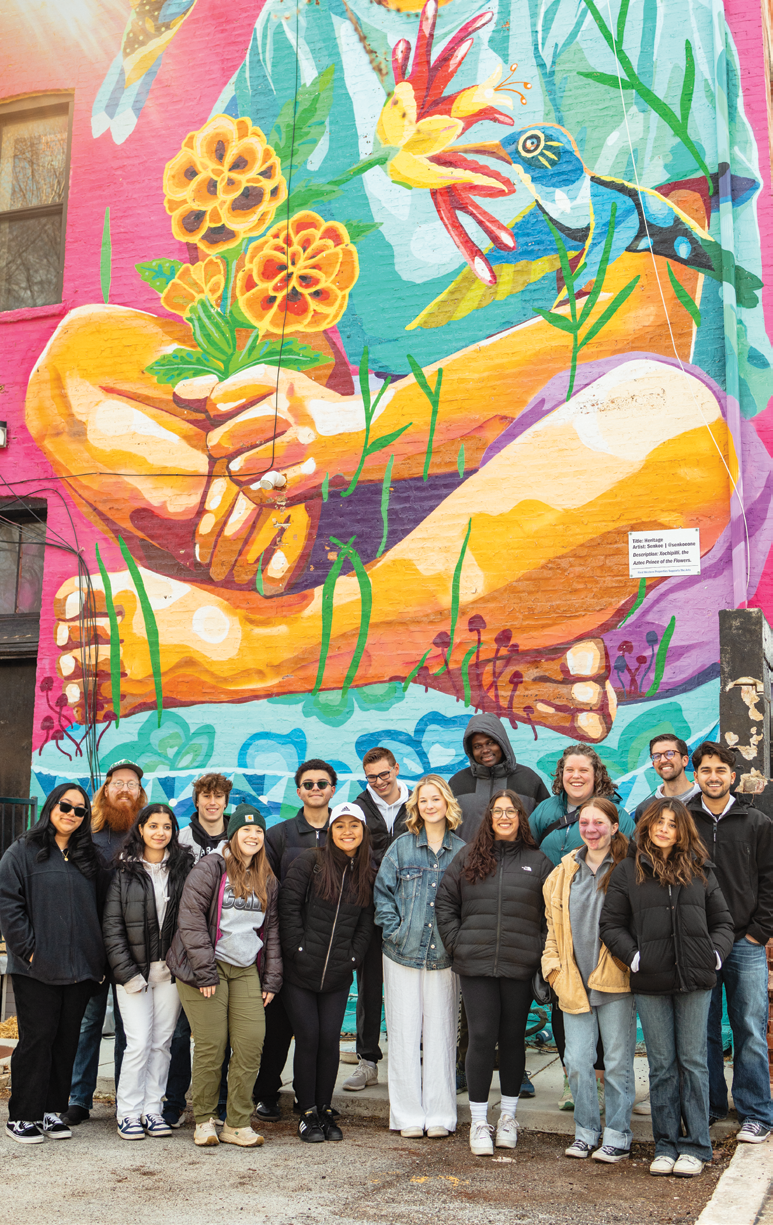
“Crux students often say the program is unlike anything they’ve done before. They tell me the experience has been more transformative and difficult than anything they’ve done, and despite living alongside people who are often their opposites, they are closer to them than anyone else,” Butin added.
This in-person, peer-to-peer support model is key, said Aucutt, especially in an environment where young people often communicate solely via social media.
Leslie Castillo, director of first-year experience, encourages in-person bonding among new students and their older peers.
“More than ever, students are having difficulty making friends,” Castillo said. “They say to me, ‘Leslie, I don’t know how to meet people,’ and I take them to events—like the Viking Fair—to check out the clubs we have that they can join.”
Gonzalez shares the same goal: to ease the transition for first-year students. “I’m here to support them,” she said. “It’s personal for me; I’m passionate about helping students find their way, and I want them to believe in themselves.”
SHARE WITH FRIENDS